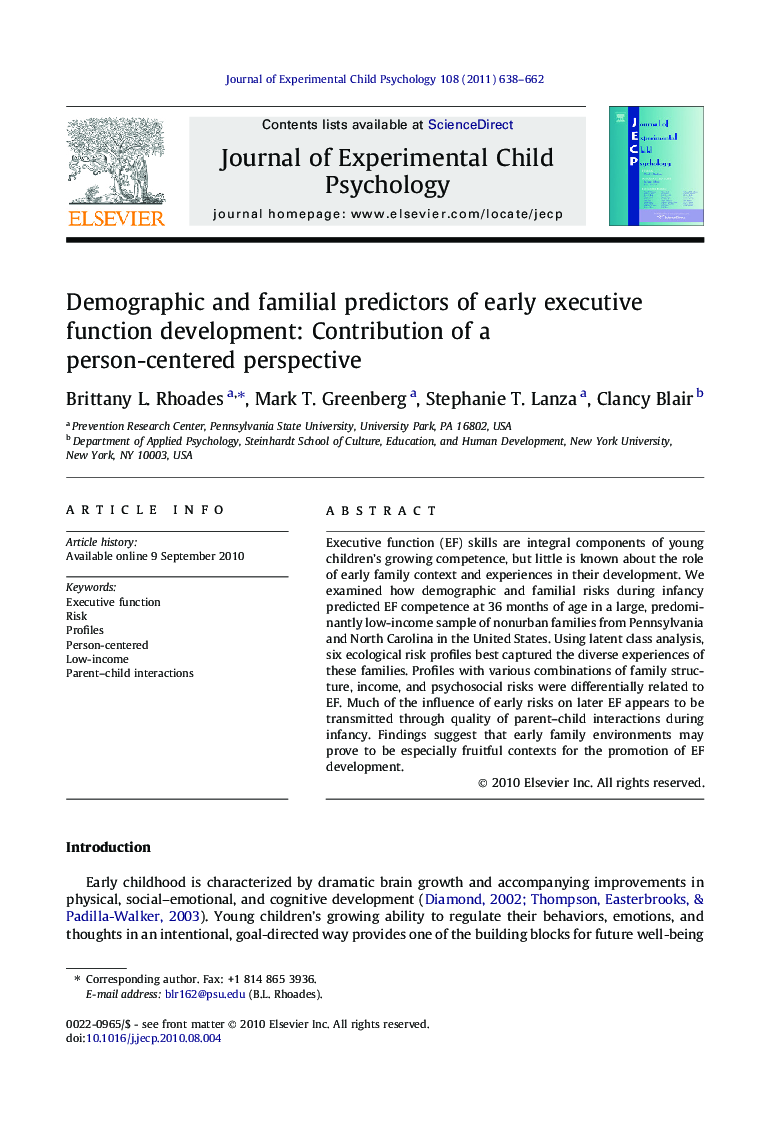| Article ID | Journal | Published Year | Pages | File Type |
|---|---|---|---|---|
| 918450 | Journal of Experimental Child Psychology | 2011 | 25 Pages |
Executive function (EF) skills are integral components of young children’s growing competence, but little is known about the role of early family context and experiences in their development. We examined how demographic and familial risks during infancy predicted EF competence at 36 months of age in a large, predominantly low-income sample of nonurban families from Pennsylvania and North Carolina in the United States. Using latent class analysis, six ecological risk profiles best captured the diverse experiences of these families. Profiles with various combinations of family structure, income, and psychosocial risks were differentially related to EF. Much of the influence of early risks on later EF appears to be transmitted through quality of parent–child interactions during infancy. Findings suggest that early family environments may prove to be especially fruitful contexts for the promotion of EF development.
